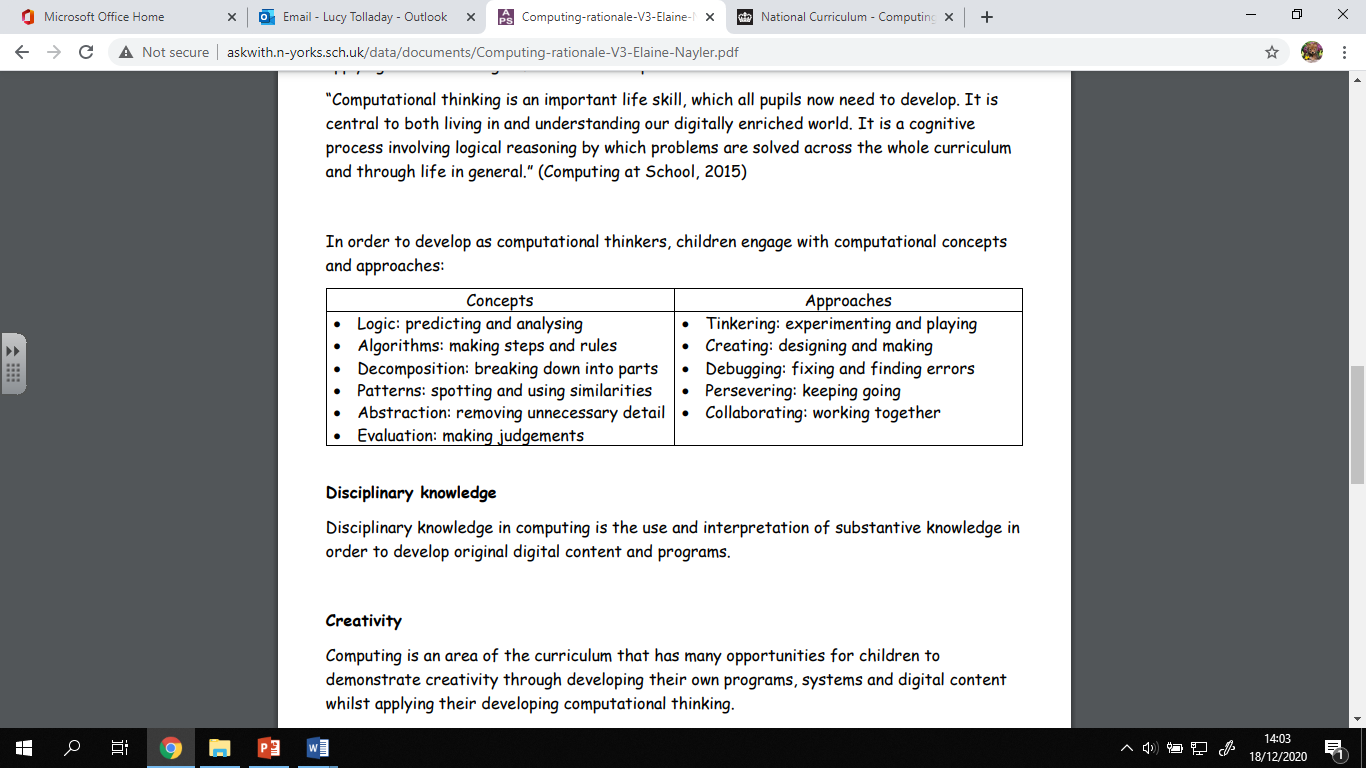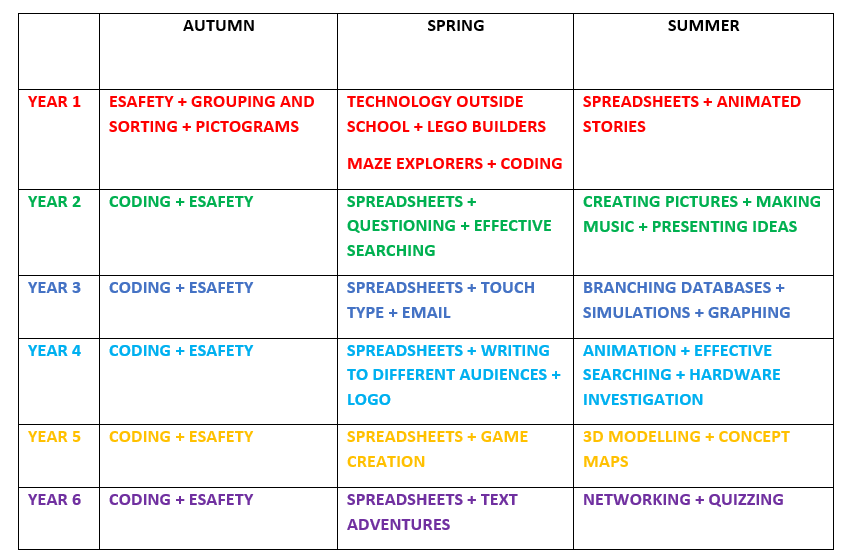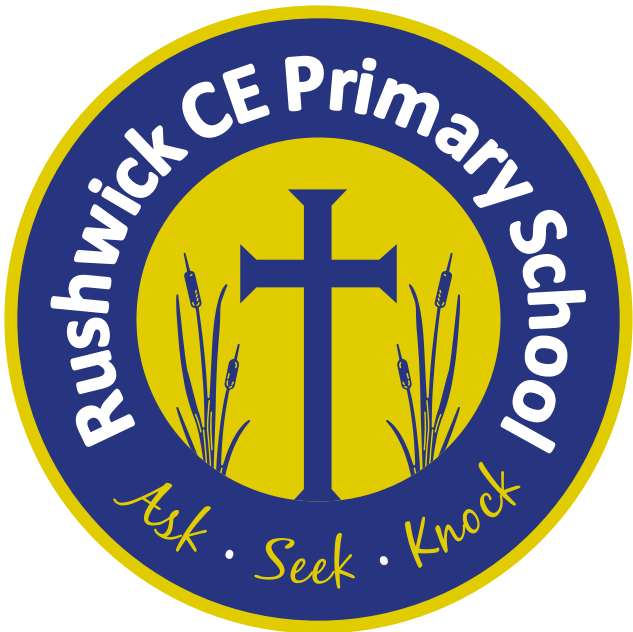Computing
Intent:
“A high-quality computing education equips pupils to use computational thinking and creativity to understand and change the world. The core of computing is computer science, in which pupils are taught the principles of information and computation, how digital systems work, and how to put this knowledge to use through programming. Building on this knowledge and understanding, pupils are equipped to use information technology to create programs, systems and a range of content. Computing also ensures that pupils become digitally literate – able to use, and express themselves and develop their ideas through, information and communication technology – at a level suitable for the future workplace and as active participants in a digital world.” (National Curriculum, 2013)
All pupils at Rushwick CE Primary School have the right to have rich, deep learning experiences that balance all the aspects of computing. With technology playing such a significant role in society today, we believe ‘Computational thinking’ is a skill children must be taught if they are to be able to participate effectively and safely in this digital world. A high-quality computing education equips pupils to use creativity to understand and change the world. Computing has deep links with Mathematics, Science, and Design and Technology while it also provides insights into both natural and artificial systems. At Rushwick CE Primary School, the core of computing is digital literacy in which pupils are given ample opportunity to learn how to use technology safely and respectfully, keeping personal information private; identifying where to go for help and support when they have concerns about content or contact on the internet or other online technologies. As a school, we recognise the importance of teaching our children about how to use the internet safely as being ‘E’ aware is one of our seven Golden Rules which are regularly shared during lessons and Collective Worship. We have an Online Safety Policy that provides guidance for teachers and children about how to use the internet safely. Children are introduced to a range of technology including laptops, ipads and interactive whiteboards, allowing them to continually practice and improve the skills they learn. This further ensures they become digitally literate so that they are able to express themselves and develop their ideas through information and computer technology– at a level suitable for the future workplace and as active participants in a digital world.
We teach a curriculum that enables children to become effective users of technology who can:
- Understand and apply the essential principles and concepts of Computer Science, including logic, algorithms and data representation;
- Analyse problems in computational term, and have repeated practical experience of writing computer programs in order to solve such problems;
- Evaluate and apply information technology analytically to solve problems;
- Communicate ideas well by utilising appliances and devices throughout all areas of the curriculum
Implementation:
A balanced curriculum that is sequenced appropriately across the three areas of computing with natural links to other curriculum areas. Planning demonstrates a substantive and disciplinary approach to teaching. Children develop fluency in using technology for a range of purposes. Staying safe online is integrated into all areas of the curriculum. It is taught specifically in computing and within PSHE. Computing lessons focus on collaboration and creativity by providing extended periods of time to work independently and with others to solve problems and develop the knowledge and skills required to be computational thinkers. In order to develop as computational thinkers, children  engage with computational concepts and approaches:
engage with computational concepts and approaches:
How are Computing lessons delivered at Rushwick Primary School?
Pupils study one discrete Computing session each week lasting 30-40 minutes in KS1 and 40-60 minutes in KS2. Sessions are delivered in three strands: digital literacy and citizenship (e-safety), information technology and computer science. Pupils also have opportunities to apply their computational thinking in other areas of the curriculum, such as Mathematics and Science when solving problems. Additional use of computing may be integrated in a typical week when word processing literacy lessons and research with other cross curricular lessons e.g. art, music, maths, history, geography etc. (this does not replace the timetabled discrete computing lesson).
An overview of the topics taught can be seen below.

What is the impact?
After the implementation of this robust computing curriculum, children at our school will be digitally literate and able to join the rest of the world on its digital platform. They will be equipped, not only with the skills and knowledge to use technology effectively and for their own benefit, but more importantly – safely. The biggest impact we want on our children is that they understand the consequences of using the Internet and that they are also aware of how to keep themselves safe online. As children become more confident in their abilities in Computing, they will become more independent and key life skills such as problem-solving, logical thinking and self-evaluation become second nature.
